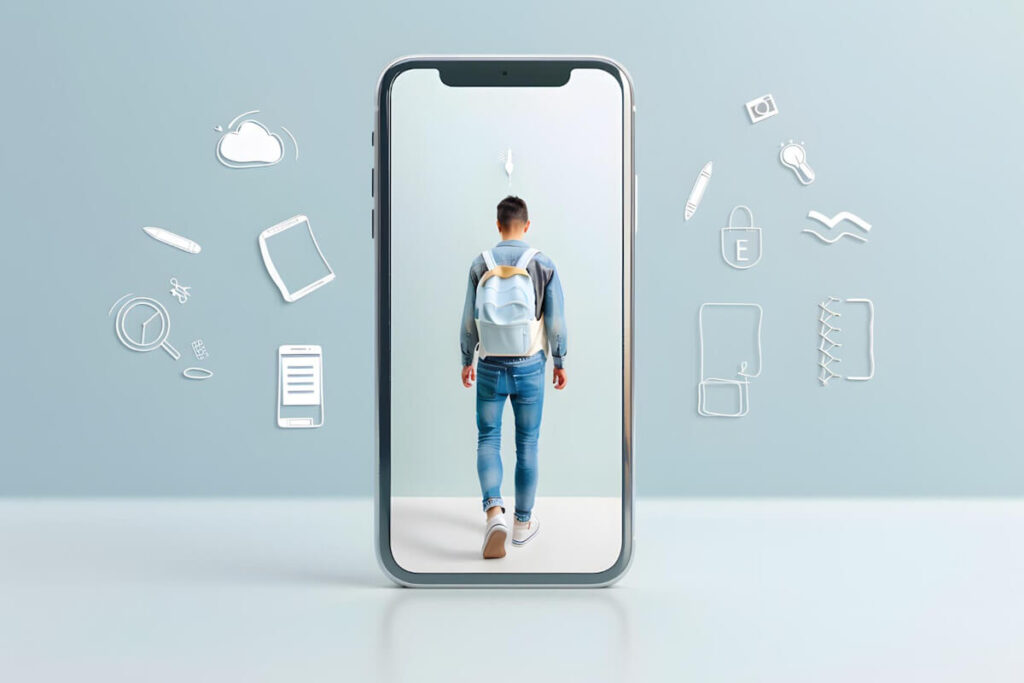In today’s digital age, mobile apps have revolutionized the way we access information and resources. With the increasing popularity of smartphones and tablets, educational institutions have started leveraging mobile apps to provide students with easy access to educational resources. These mobile apps offer a wide range of benefits, including convenience, flexibility, and interactivity. In this article, we will explore how mobile apps can improve access to educational resources and enhance the learning experience for students.
Benefits of Mobile Apps in Education
Mobile apps offer several advantages over traditional methods of accessing educational resources. Some of the key benefits include:
- Convenience: One of the main advantages of mobile apps is the convenience they offer. Students can access educational resources anytime, anywhere, without the need for a physical textbook or computer. This flexibility allows students to study at their own pace and on their own schedule.
- Interactivity: Mobile apps often include interactive features such as quizzes, games, and multimedia content. These interactive elements can enhance the learning experience by engaging students and making the material more engaging and memorable.
- Personalization: Many mobile apps allow students to personalize their learning experience by setting their own goals, tracking their progress, and receiving personalized recommendations. This level of customization can help students stay motivated and focused on their studies.
- Collaboration: Mobile apps can facilitate collaboration among students and teachers by allowing them to share resources, collaborate on projects, and communicate in real-time. This collaborative approach can foster a sense of community and support among learners.
- Accessibility: Mobile apps make educational resources more accessible to students with disabilities, ensuring that all learners have equal opportunities to succeed.
Features of Educational Mobile Apps
Educational mobile apps come in various forms and offer a wide range of features to enhance the learning experience. Some common features found in educational mobile apps include:
- Online courses: Many educational institutions offer online courses through mobile apps, allowing students to access lectures, assignments, and other course materials on their mobile devices.
- Digital textbooks: Mobile apps can also provide access to digital textbooks, which are often more affordable and portable than traditional printed textbooks.
- Study tools: Educational apps often include study tools such as flashcards, quizzes, and practice tests to help students review and reinforce their knowledge.
- Progress tracking: Mobile apps can track students’ progress, including their grades, study habits, and learning goals. This data can help students identify areas for improvement and track their academic performance over time.
- Feedback and assessment: Mobile apps can provide instant feedback to students on their performance, allowing them to identify strengths and weaknesses and improve their learning outcomes.
- Resource sharing: Educational mobile apps enable students to share educational resources with their peers, fostering a collaborative learning environment.
Examples of Educational Mobile Apps
There are numerous educational mobile apps available on the market that cater to different subjects, age groups, and learning styles. Some popular educational apps include:
- Khan Academy: Khan Academy offers a wide range of educational resources, including video lectures, practice exercises, and personalized learning dashboards.
- Duolingo: Duolingo is a language-learning app that uses gamification to make learning a new language fun and engaging.
- Google Classroom: Google Classroom is a learning management system that allows teachers to create and distribute assignments, grade students’ work, and communicate with students.
- Quizlet: Quizlet is a study tool that allows students to create flashcards, quizzes, and other study materials to help them review and memorize course material.
- Photomath: Photomath is a math-solving app that allows students to take pictures of math problems and receive step-by-step solutions.
Conclusion
In conclusion, mobile apps have the potential to revolutionize access to educational resources and enhance the learning experience for students. By leveraging the convenience, interactivity, personalization, collaboration, accessibility, and other key features of mobile apps, educational institutions can provide students with a more engaging and effective learning environment. As technology continues to advance, the role of mobile apps in education is only expected to grow, making it essential for educators and students alike to embrace this digital transformation.
Looking to enhance the educational experience at your institution with innovative mobile app solutions? Contact us today to explore how we can help revolutionize access to educational resources for your students.
FAQs:
What are some advantages of using mobile apps for accessing educational resources?
Mobile apps offer convenience by allowing students to access resources anytime, anywhere. They also provide interactivity through features like quizzes and games, personalization options for setting goals and tracking progress, and collaboration opportunities among students and teachers.
What types of features can be found in educational mobile apps?
Educational mobile apps may include online courses for accessing lectures and assignments, digital textbooks for affordability and portability, and study tools to enhance the learning experience.
How can mobile apps enhance the learning experience for students?
Mobile apps can make learning more engaging and memorable through interactive features, personalized learning experiences, and collaboration opportunities that foster a sense of community and support among learners.
Why are educational institutions leveraging mobile apps to provide students with access to educational resources?
Educational institutions are using mobile apps to improve access to resources, enhance the learning experience, and offer students flexibility in studying at their own pace and on their own schedule.
